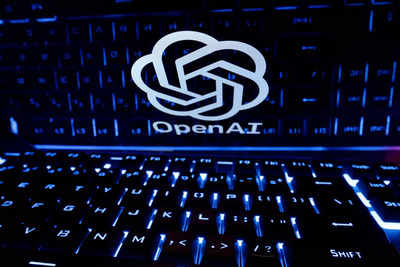
OpenAI and Microsoft are facing a class-action lawsuit filed by book authors Nicholas Basbanes and Nicholas Gage. The authors claim that their copyrighted works were unlawfully used by the companies to develop a profitable artificial intelligence system. The lawsuit alleges that OpenAI and Microsoft stole the authors' intellectual property without permission. The authors seek damages of up to $150,000 for each infringed work. OpenAI is also involved in a legal battle with The New York Times over copyright content used to train AI models.
OpenAI, led by Sam Altman, and tech giant
Microsoft
are facing yet another class-action lawsuit. This time, the
lawsuit
has been filed by
book authors
who claim that their copyrighted works were unlawfully used by the companies to develop a highly profitable
artificial intelligence system
.The authors have accused
OpenAI
and Microsoft of outright stealing their intellectual property without permission.
A lawsuit has been filed in Manhattan federal court by non-fiction authors Nicholas Basbanes and Nicholas Gage, as reported by NBC. Basbanes and Gage are seeking to represent a group of writers whose copyrighted work has allegedly been consistently stolen by Microsoft and OpenAI.
"They're no different than any other thief," the lawsuit alleged. The lawsuit aims to claim damages of up to $150,000 for each of the works that the defendants are accused of infringing.
The lawsuit further alleged that OpenAI's system relies on being trained by ingesting "massive amounts of written material," which includes books written by Basbanes and Gage.
Microsoft or OpenAI haven't issued a statement or comment on the matter.
OpenAI, a leading artificial intelligence research organisation, has been hit with a lawsuit by the Authors' Guild and a group of prominent authors including Jonathan Franzen, John Grisham, George R.R. Martin, and Jodi Picoult. Apart from that, other authors -- Michael Chabon, David Henry Hwang, Rachel Louise Snyder and Ayelet Waldman -- have also filed a lawsuit over copyright content.
OpenAI and Microsoft are also involved in a legal battle with The New York Times.
The lawsuit raises questions about AI's use in the news industry and the ethical and legal challenges it poses. NYT claims that ChatGPT and Copilot were trained on a dataset that includes copyrighted NYT articles, violating intellectual property rights. The outcome of the lawsuit could impact the media and tech industries, potentially changing how generative AI works and affecting the production, consumption, and monetization of news.












 English (US) ·
English (US) ·